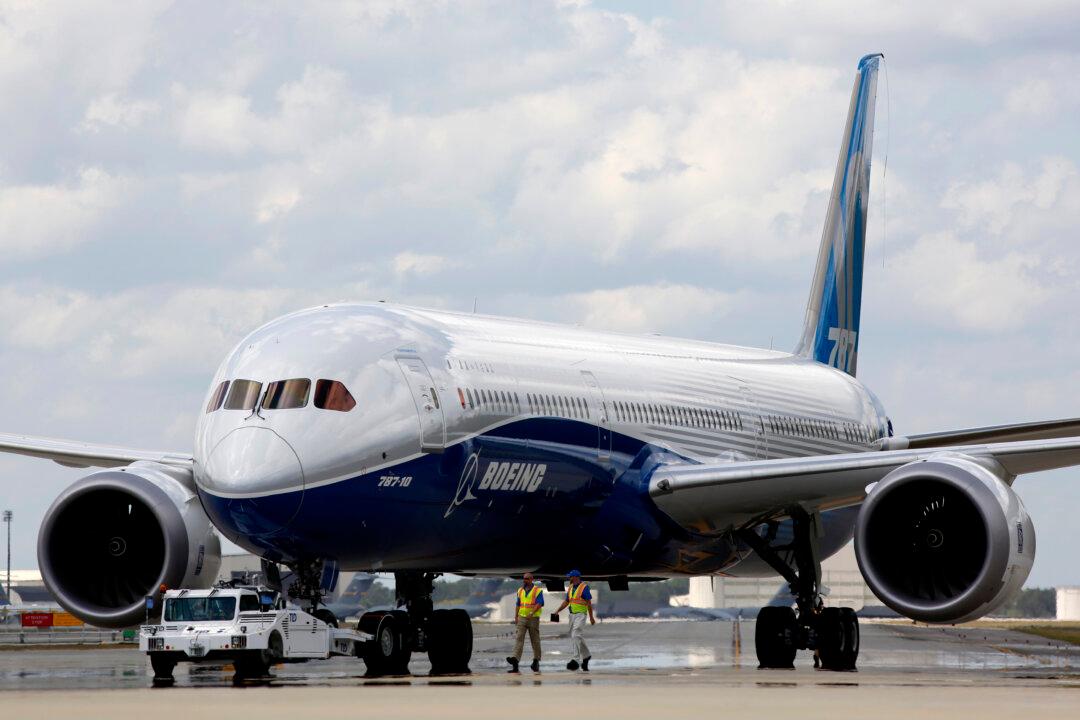The Federal Aviation Administration (FAA) opened a new investigation into Boeing on May 6 after the company voluntarily admitted to the agency that it may not have completed required safety inspections.
An FAA spokesperson told The Epoch Times in an email that the required inspections involved “adequate bonding and grounding where the wings join the fuselage on certain 787 Dreamliner airplanes.”





